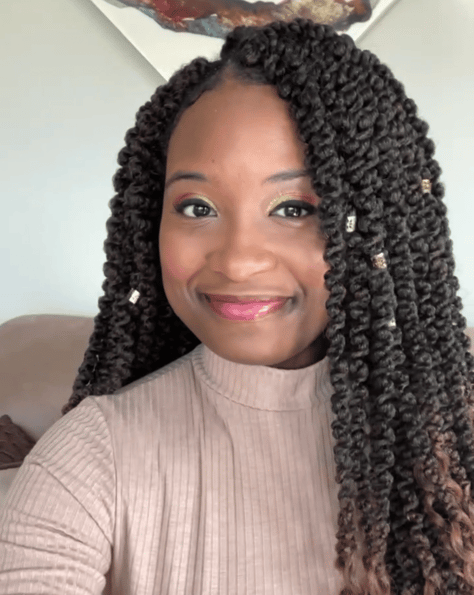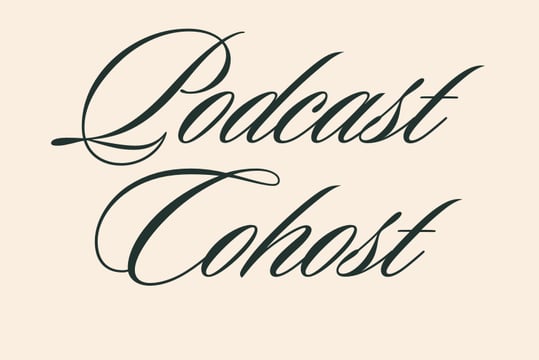
Prioritize Your Self-Care
Hello, beautiful people! I'm Chamylah General. I'm just a girl who grew up in Harlem, went to college in New Jersey, and wanted to make mental health resources more accessible to minorities. After experiencing my own mental health challenges, I quickly saw the value in receiving therapy and practicing self-care. As a licensed therapist in New Jersey and a lover of the arts, I am committed to destigmatizing conversations about mental health advocacy. Check out some of my projects, tips, and free resources!


You Are Important and Your Life Is Valuable
Self-esteem is the value and worth we place on ourselves based on our belief system. What do you think about yourself? Self-esteem can affect your mental health, relationships, motivation, and self-talk. Practice stopping, challenging, and replacing your negative thoughts with more positive ones. Accept your weaknesses, celebrate your strengths, share how you honestly feel, try something new or exciting, and practice self-compassion along every step of your journey.
You can be proactive about your mental health by creating a journal to write about the following things:
Identifying your triggers so that you can create a plan to manage them (triggers can be people, places, things, experiences, images, or sounds)
Clarifying the boundaries that you may need to set (e.g. using assertive communication, saying "no" instead of people pleasing, being selective about the content you consume, communicating less with negative people)
Creating a record of the ways you engage in self-care every day (e.g. morning meditation, afternoon artistic activities, evening exercise)
There are many benefits to being aware of healthy coping strategies, nurturing positive relationships, engaging in meaningful activities or hobbies, exercising consistently, eating balanced meals, maintaining a consistent sleep schedule, and committing to a daily self-care routine. Seasonal Affective Disorder (SAD) affects approximately 10 million people. SAD is a type of depression that usually occurs during certain seasons, specifically the fall and winter. Symptoms usually include anxiety, feelings of emptiness or hopelessness, difficulty concentrating, fatigue, loss of pleasure in activities, social withdrawal, and thoughts about suicide.





3 Ways to Practice Self Care
Here are 3 suggested ways you can start practicing self-care today. Feel free to give them a try and see which one you like the best!
Self Care Strategy 1:
Write
Have you ever struggled with overthinking? Sometimes, we need to slow down to acknowledge and process our thoughts and feelings. Everyone needs an outlet and writing can be a great place to start. You can use writing as a tool to vent or as a vehicle to assist you with identifying things you are grateful for.
Have you ever felt disconnected? When we are sad, we tend to isolate ourselves because it feels safer. I want to challenge you to do the opposite. When we take the time to interact with positive people, it can be a great buffer between us and sadness. Positive experiences can challenge the negative thoughts you have in your head.
Self Care Strategy 2: Socialize
Self Care Strategy 3: Practice Mindfulness
Have people ever told you that you can be hard on yourself? Mindfulness involves being a nonjudgmental observer of yourself and your surroundings. The next time you feel a sense of guilt or shame, try to accept yourself instead of judging yourself. Self-love demands you to be compassionate towards the parts of yourself that you are most ashamed of.

58%
The average delay between the onset of mental illness symptoms and treatment is 11 years. 11.9% of U.S. adults with serious mental illness had no insurance coverage in 2021. In 2022, 58.9% of adults with a mental illness who sought or thought they should receive mental health care said the reason they did not receive it was because they thought it would cost too much.
YOU ARE NOT ALONE
64% of students are no longer pursuing college due to mental health issues. 41% of college counselors reported anxiety disorders as the most frequent disorder they see among their patients. Younger adults (18-34 years old) are more likely than older adults (50+) to say social connection has the biggest impact on their mental health.
57 Million
In 2024, an estimated 57.8 million adults (19% of the country) had a mental illness, but only 43% received any kind of mental health care. Young adults ages 18-25 in the U.S. experience the highest rates of mental illness (36.2%), followed by those ages 26 - 49 (29.4%) and adults ages 50 and over (13.9%).
12 Million
In 2021, there were nearly 2 times as many suicides (48,183) in the United States as there were homicides (26,031). 79% of people who die by suicide are male. An estimated 12.3 million adults in the U.S. seriously considered suicide in 2021, with 3.5 million planning a suicide attempt and 1.7 million attempting suicide. Suicide is the 2nd leading cause of death among people aged 10-14 and the 3rd leading cause of death among those aged 15-24 in the U.S.
32%
The percentage of U.S. adults receiving mental health treatment increased from 19.2% in 2019 to 21.6% in 2021. In 2023, parents were more likely than other adults to report that they felt consumed by worries regarding money, which caused fights in their family. Those who considered going to couples therapy didn't because 32% reported their partner didn't want to, 20% said it was too inconvenient, and 18% decided to go to individual therapy instead.
Anxiety and depression are the 2 most commonly diagnosed mental health conditions in the U.S. Anxiety disorders affect 42.5 million adults. 21 million U.S. adults are living with depression. Women experience depression at roughly twice the rate of men.
42 Million
64%

Contact me
Please contact me if you would like to do any of the following:
- Request to receive a wellness presentation at your school or organization (virtually or in person)
- Request to collaborate with coordinating wellness events, retreats, or conferences
- Ask questions about ways you can continue to be a mental health advocate








Contact me
chamylahg@gmail.com

